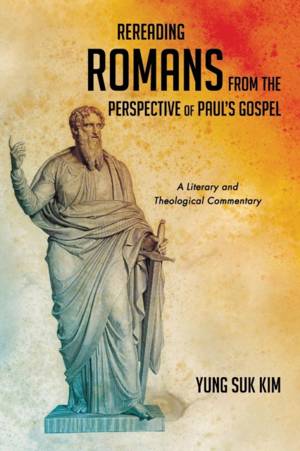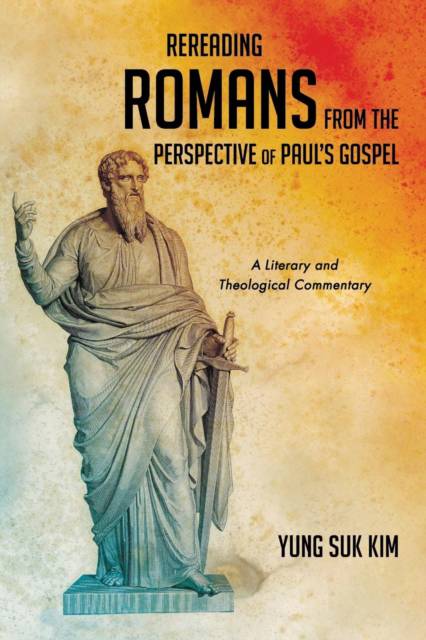
- Retrait gratuit dans votre magasin Club
- 7.000.000 titres dans notre catalogue
- Payer en toute sécurité
- Toujours un magasin près de chez vous
- Retrait gratuit dans votre magasin Club
- 7.000.0000 titres dans notre catalogue
- Payer en toute sécurité
- Toujours un magasin près de chez vous
Rereading Romans from the Perspective of Paul's Gospel
A Literary and Theological Commentary
Yung Suk Kim
Livre broché | Anglais
23,95 €
+ 47 points
Format
Description
Paul did not write a systematic theology or specific church doctrines when he wrote Romans. His audience was Roman Christians, and his last will was to preach the gospel to all, especially gentiles in Spain. Through this letter, Paul wants to pave the way for a visit to Rome and expects their support on his mission trip to Spain. The question is this: What kind of the gospel does he want to share with them? Traditionally, the letter has been read from the perspective of forensic salvation that an individual justification occurs once and for all by faith in Christ. This view remains with the so-called New Perspective on Paul, and Christ's faithfulness has not been explored. Rereading the letter with a renewed concept of the good news in the letter, this book challenges the traditional reading of Romans and explores Paul's threefold gospel that features the gospel that is God-centered, Christ-exemplified, and Christian-imitated. His main concern is how gentiles can become children of God, as well as how Jews may live faithfully in Christ. In Romans, the good news is the power of God for salvation to everyone who has faith. It is not a set of knowledge about God or Jesus. Paul is eager to share this gospel of faith with the Roman Christians and to correct some misunderstandings about him, since his gospel is viewed as anti-Jewish or antinomian.
Spécifications
Parties prenantes
- Auteur(s) :
- Editeur:
Contenu
- Nombre de pages :
- 118
- Langue:
- Anglais
Caractéristiques
- EAN:
- 9781532693090
- Date de parution :
- 02-07-19
- Format:
- Livre broché
- Format numérique:
- Trade paperback (VS)
- Dimensions :
- 152 mm x 229 mm
- Poids :
- 167 g

Les avis
Nous publions uniquement les avis qui respectent les conditions requises. Consultez nos conditions pour les avis.






